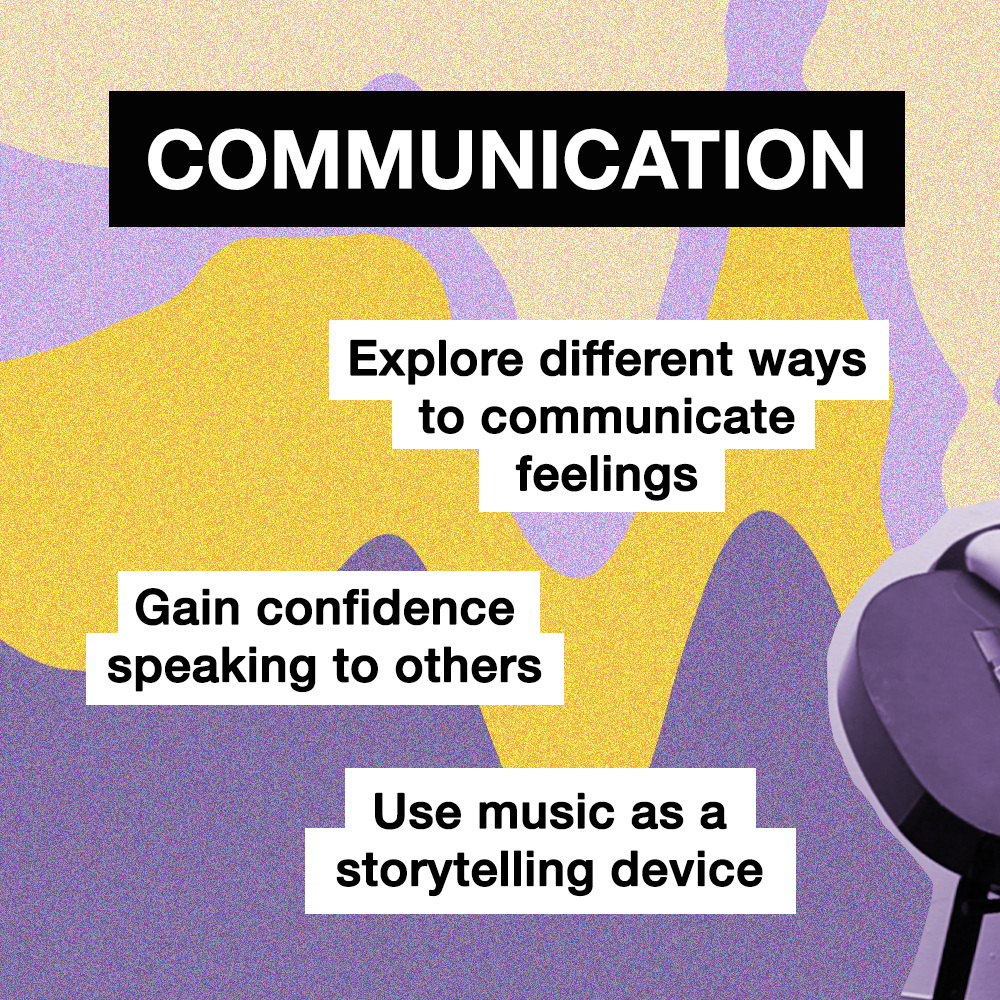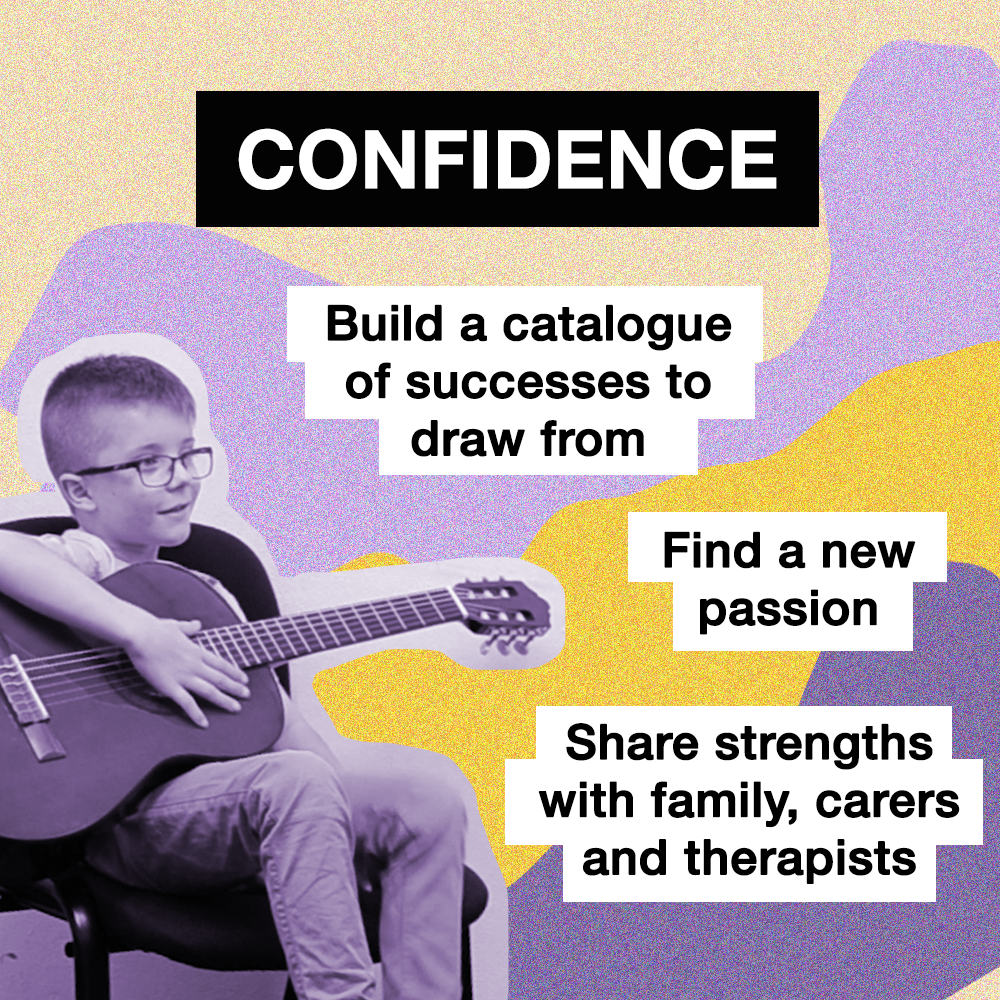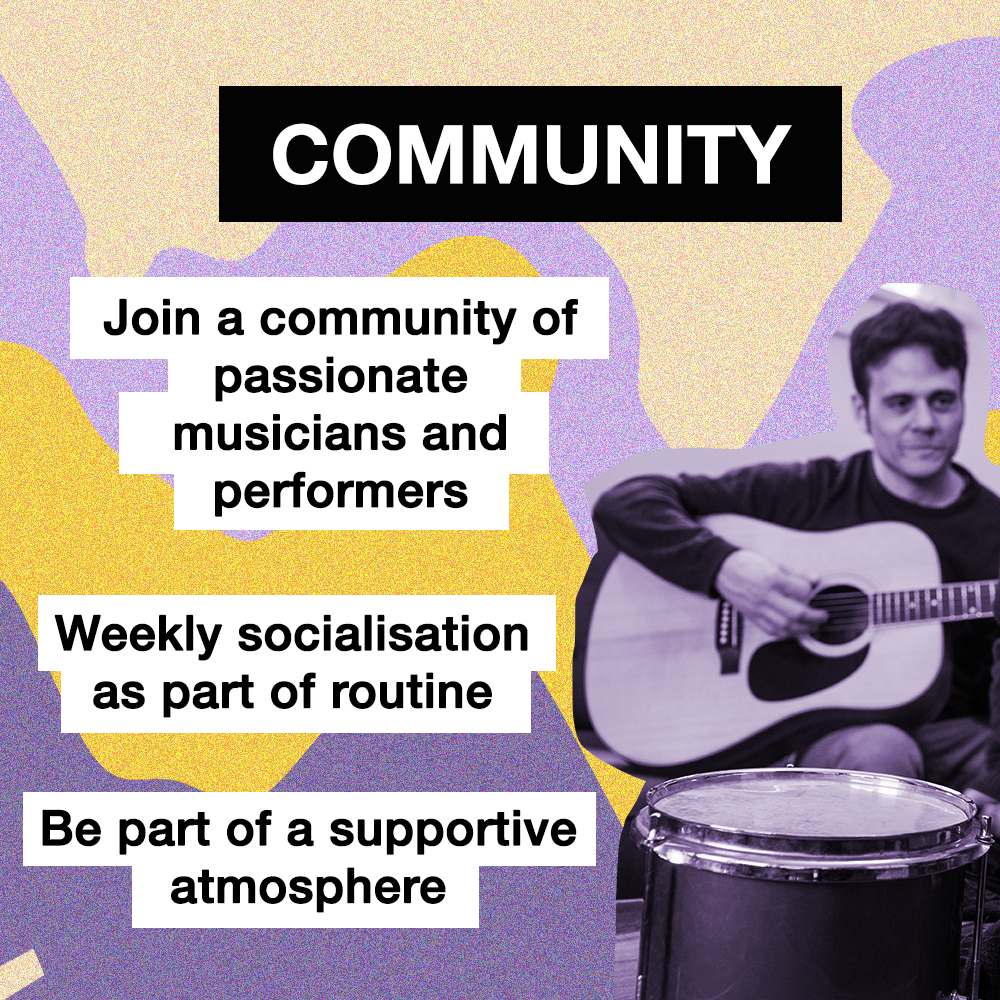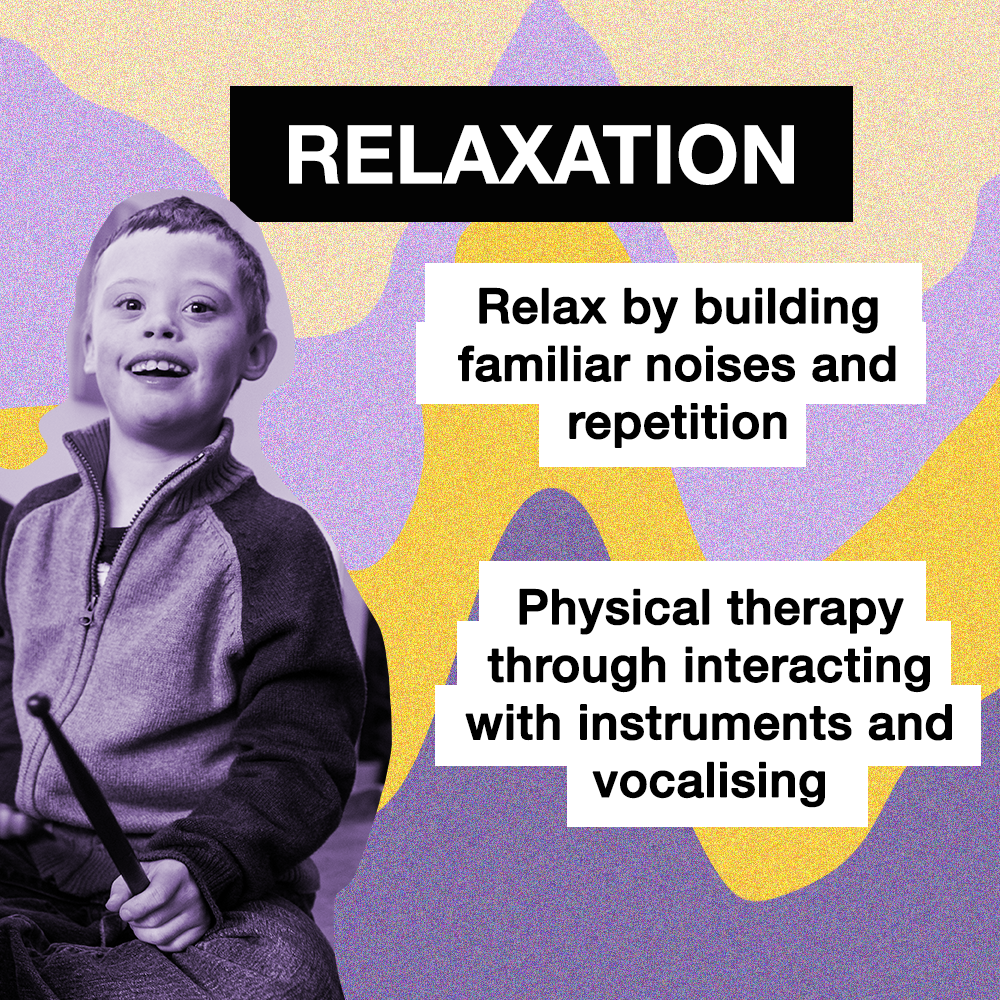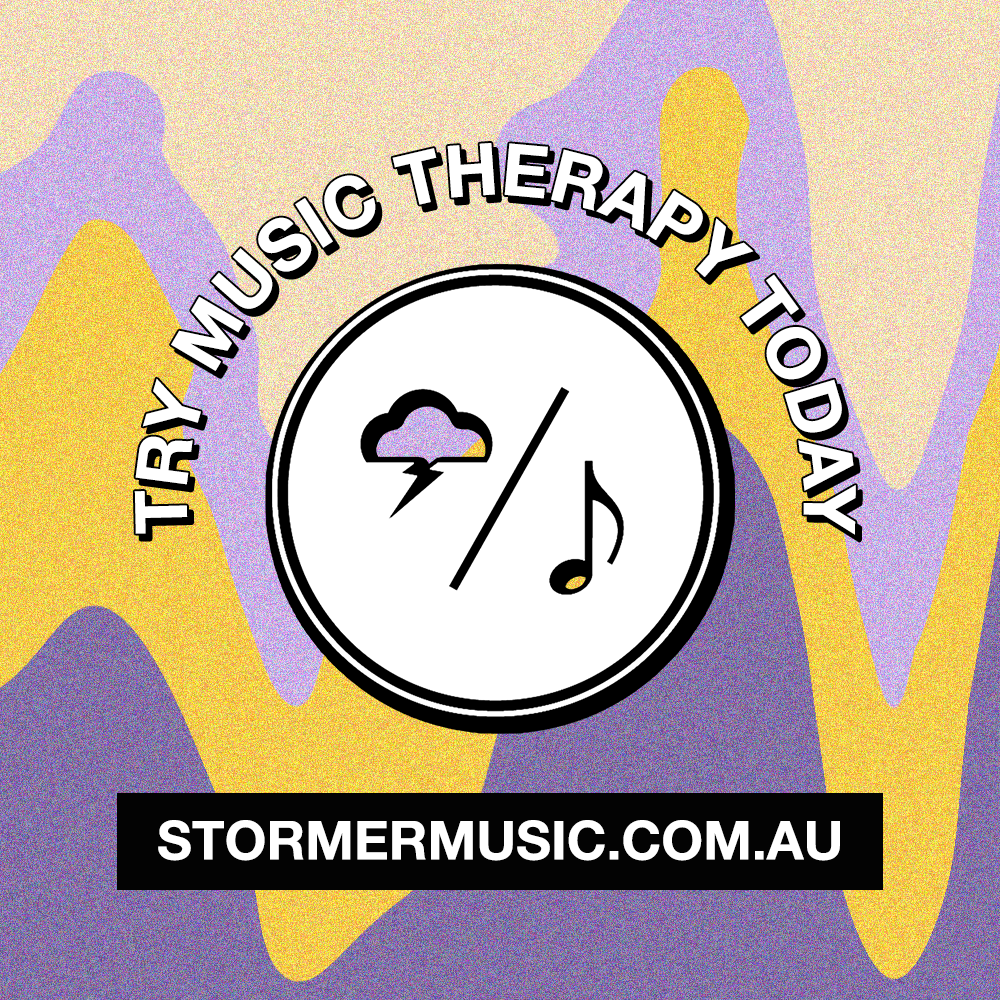We are constantly inspired to make our world a more musical place. Our aim is to make music accessible for people all ages, abilities, experience and walks of life. We truly believe in the power of music, we see it every day; its capacity to soothe, heal, empower, express and speak where words fail.
It's a privilege today to share with you everything you need to know about our Music Therapy program and how to get involved. We hope you find this helpful and look forward to working with you when you're ready to take that step with us
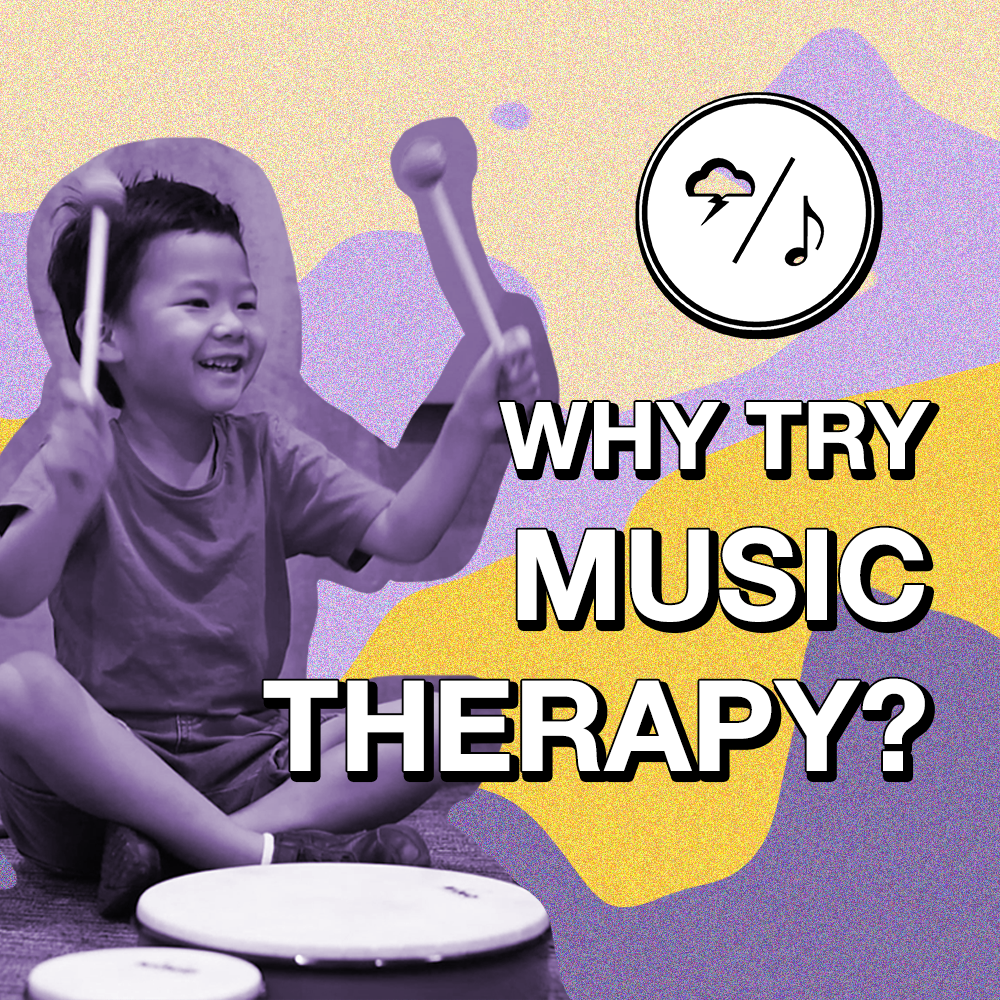
Music therapy is a research based practice and profession where we use music to actively support people as they strive to improve their health, capacity, functioning and wellbeing. Music therapy is different from music education and entertainment as it focuses on therapeutic outcomes rather than musical ones. Music Therapy is great for those with:
- Physical and intellectual disabilities
- Early Intervention needs
- Mental health conditions
- Speech and language disorders
- Autism Spectrum Disorder
- Regulation, Emotional and behavioural difficulties
- Coordination disorders
- Family relationship difficulties
- Brain injury rehabilitation plans
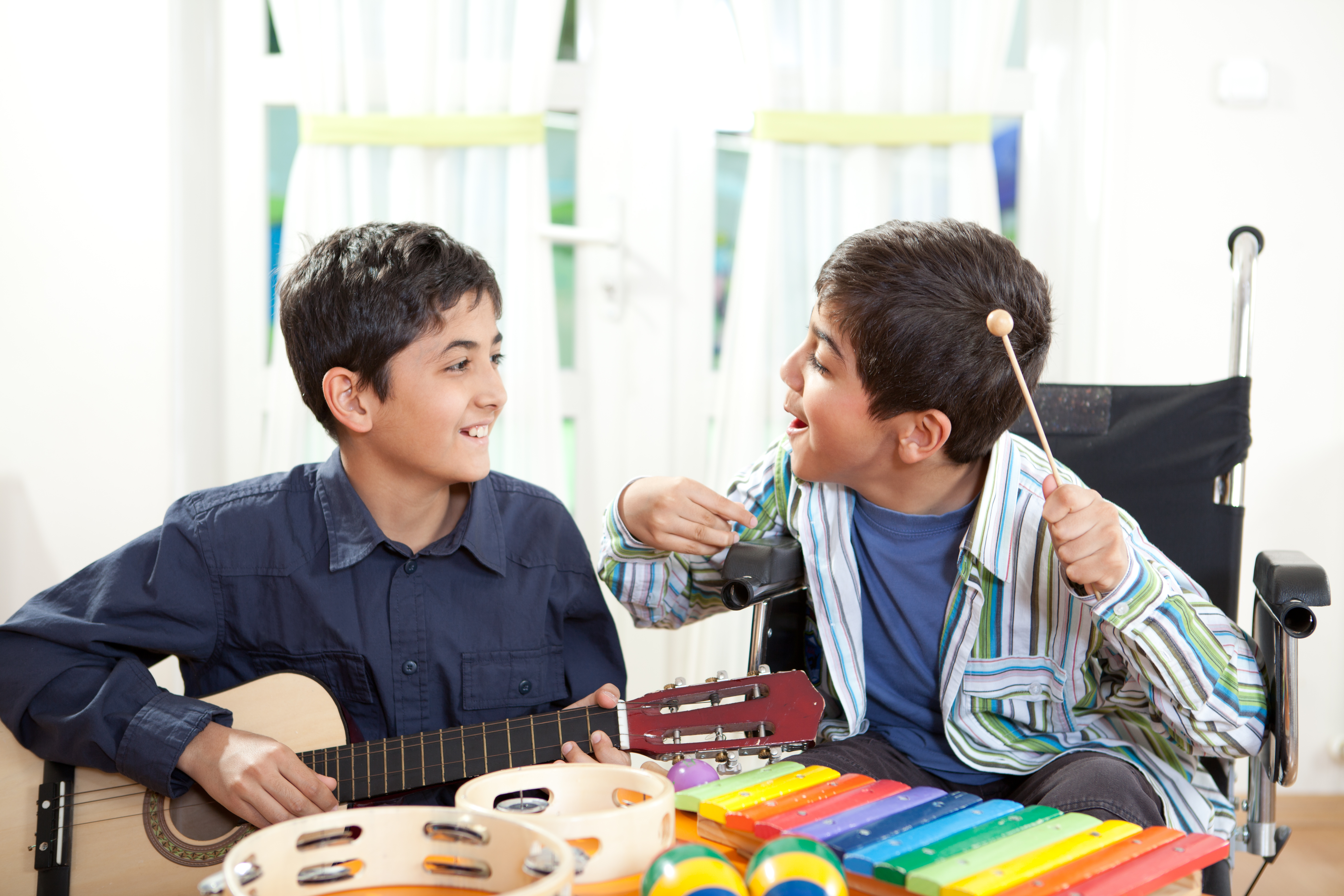
Our music therapists are committed to supporting people of any age and ability regardless of musical skill, culture or background in helping them express, play, create and enjoy music. Learning an instrument is great for:
- Improving physical health and ability
- Addressing emotional and behavioural difficulties
- Developing communication and social skills
- Increasing creativity, self-esteem and confidence
- Rehabilitation of upper and lower limbs|
- Emotional and sensory regulation
- Two-way communication skills
- Motor planning
- Social engagement
Here's what our student Leon has to say about the experience here...
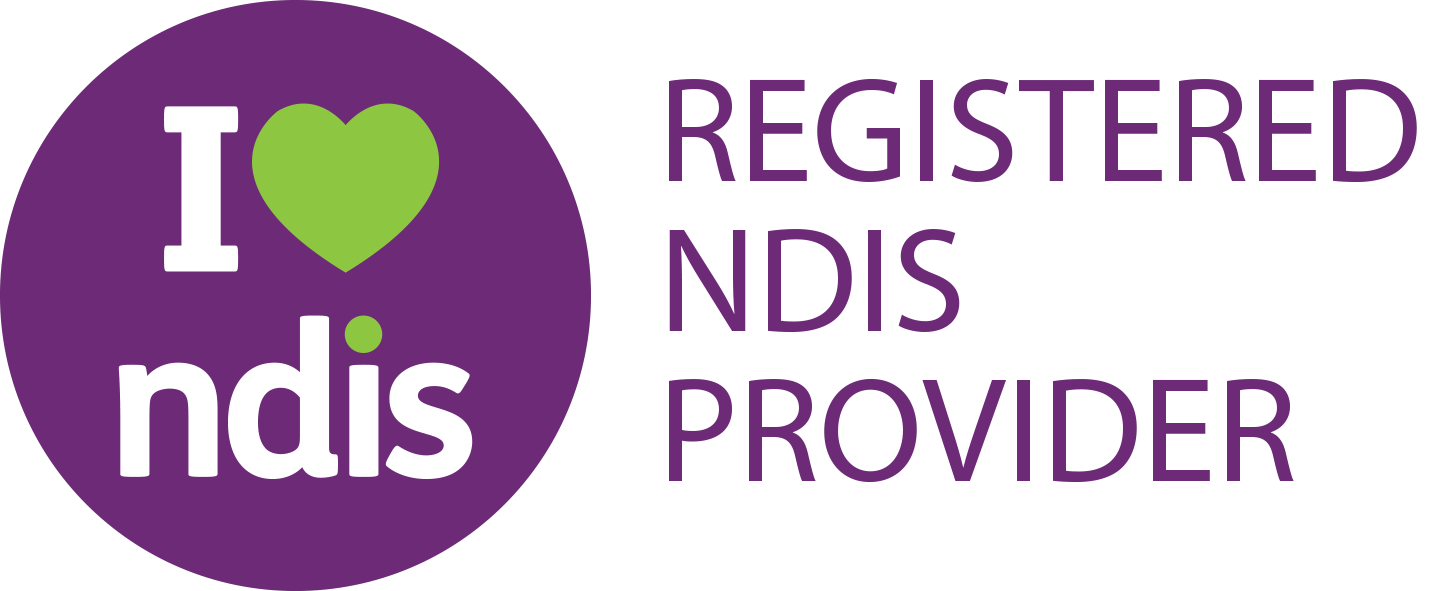
Music therapy, delivered by a registered music therapist, has been recognised by the NDIS for inclusion under the support cluster of ‘Capacity Building - Improved Daily Living'.
Access for NDIS funding for Music Therapy is available at Stormer Music for plan and self managed clients and their families.
Details on plan-managed funding here.
Details on self-managed funding here.
Details on NDIA-managed funding here.
1 x 30 Minute Class Per Week: $97
1 x 60 Minute Class Per Week: $189
NDIS Reports - $189 per report
Initial Consultation, Risk Assessment, Treat Planning - $189 p/h
"What an awesome place! My son has come such a long way with the support & encouragement of the staff from Stormer Music. Worth paying for the knowledge and professionalism they show! 5 stars!"
--
"Our daughter looks forward to coming to her singing lessons every week! Great space, friendly staff and excellent teachers. Highly recommend!If you are looking for a music school with a friendly yet professional atmosphere with Amazingly talented staff this is the place to go. Great for any level from beginner to advance. I wouldn’t send my children anywhere else!!!"
--
"Stormer Music is heaven sent! Great, friendly, professional tutors. Great variety and flexibility of different types of lessons to suit everyone. I have learned so many things in the short amount of time I've been going to Stormer Music. I am so grateful to have found this place. I have spent a lot of time, money, energy and effort looking for a half decent vocal tutor/coach. Stormer Music is FANTASTIC! No regrets. 100% recommend"
--
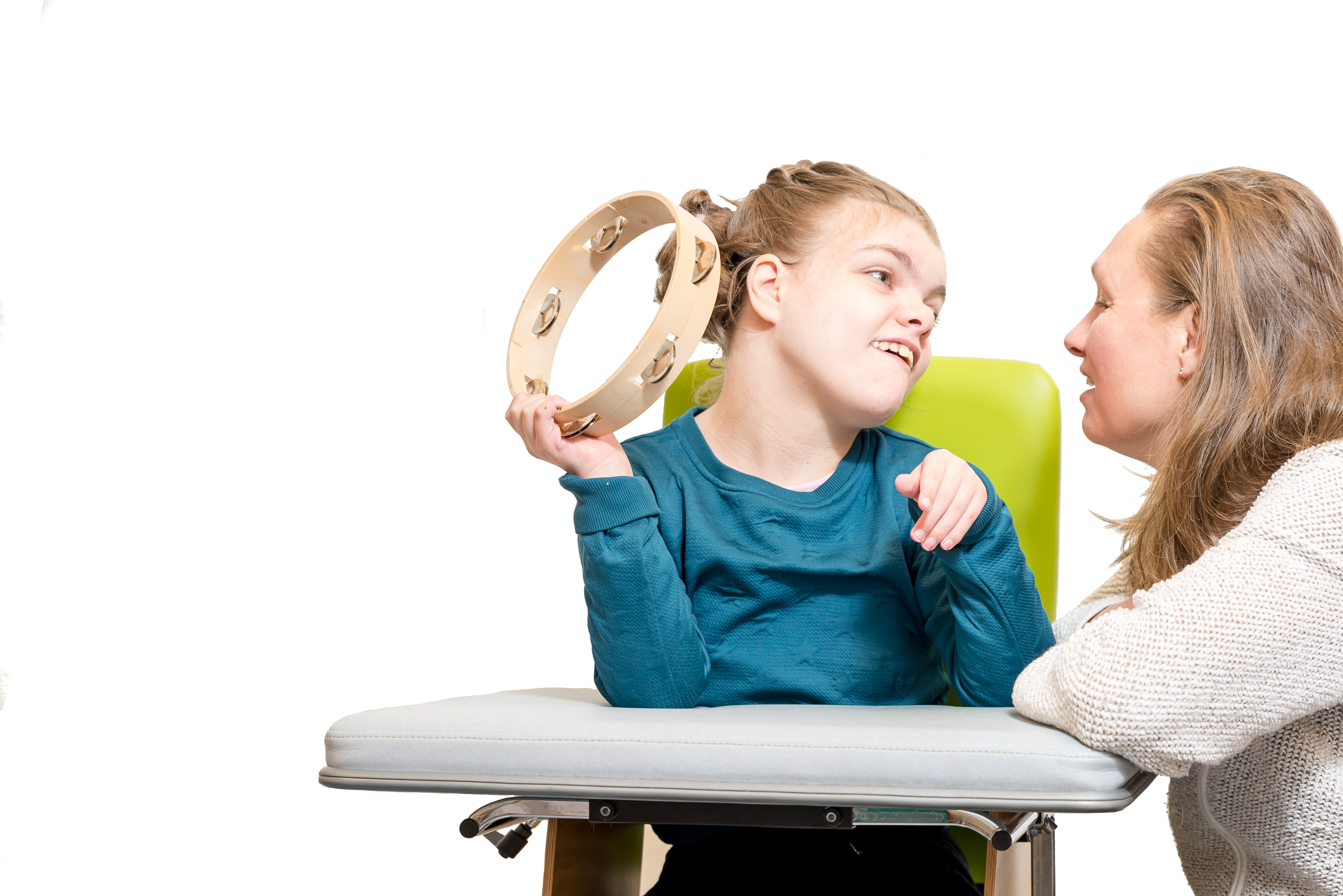
What Does Music Therapy Involve?
1. Initial assessment: we meet in person and get to know you. We will assess you/your child within a music therapy setting to determine current abilities and needs.
2. Goal-setting: we will collaborate to identify specific goals and form a personalised program to work towards achieving them.
3. Music therapy sessions: sessions consist of interactive interventions designed to address the goals we have set together. These could include singing, moving to music, playing instruments, improvising through music and song-writing.
4. Evaluation: we regularly evaluate and review the process and outcomes with you to ensure success.
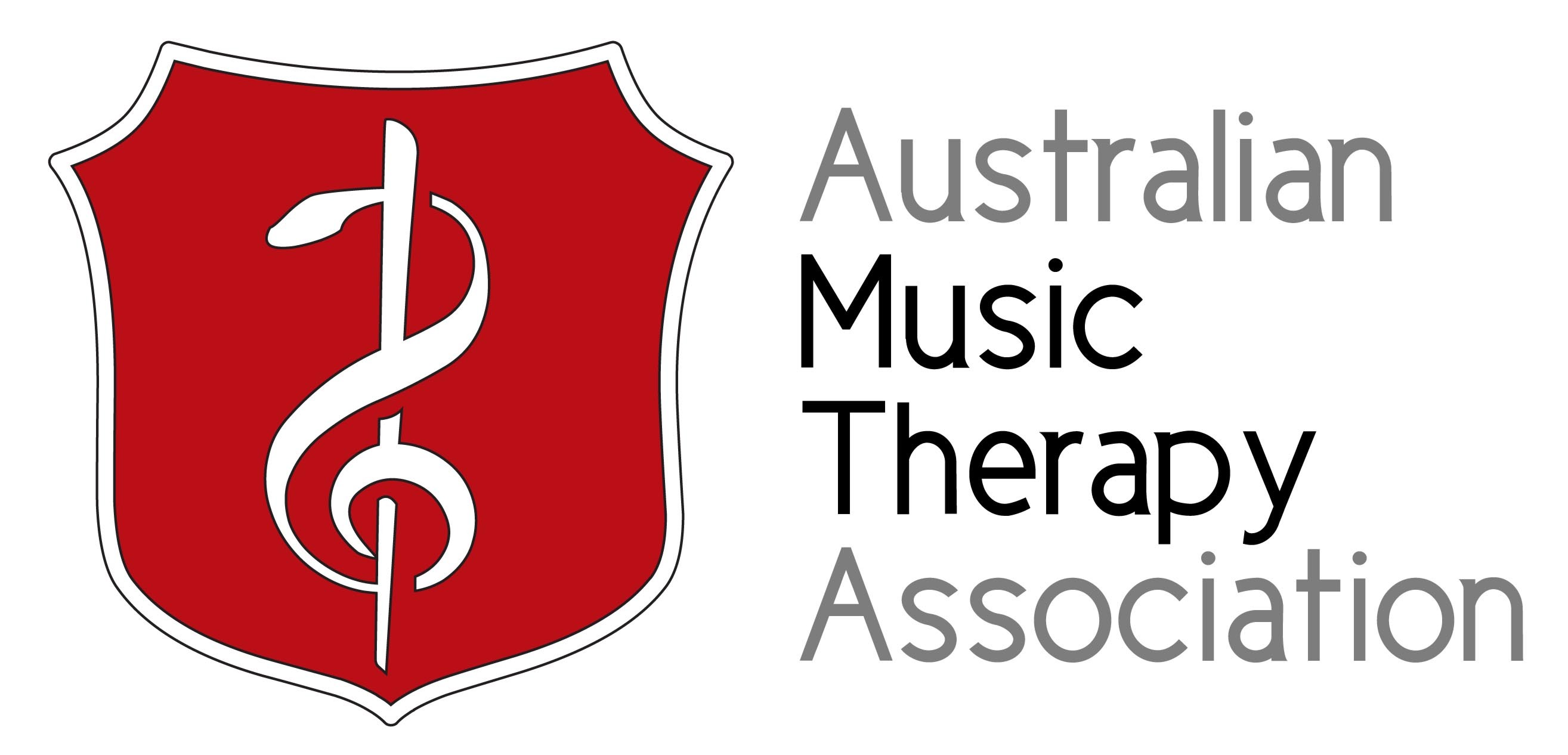
What Is A Registered Music Therapist?
A Registered Music Therapist (RMT) is registered with the Australian Music Therapy Association. Music Therapists are highly trained in using music to change lives for the better through programs tailored to meet the unique, evolving needs of each client we work with.
To become a music therapist one will usually have to complete a music degree followed by a postgraduate qualification in music therapy. Graduates with a degree in another discipline may be considered for postgraduate degrees if they have an appropriate level of musical experience.
Our music therapists are hand chosen for not only their musical and therapeutic capacity but for value alignment, communication skills, ethics and heart.
Here's what our student Liz has to say about the experience here...
What Are The Benefits Of Music Therapy?
There is a large body of research that describes how music affects the brain and how music can assist individuals with special needs. Music activates many areas of the brain and has been found to positively affect development, learning and daily functioning. These functions include attention, listening, speech production, emotions, motor skills, memory, coordination and decision making.
For people whose disabilities are severe and profound, music therapy tends to address goals focused almost exclusively on interaction, communication, socialisation and physical needs. Research shows that using a person’s preferred songs can enable people with profound intellectual and multiple disabilities to improve their choice-making skills using non-verbal facial expressions and eye-gaze. You will love it!
